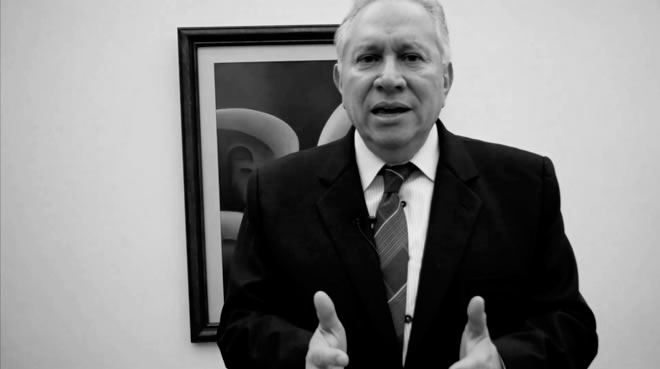

One of the fundamental pillars to guarantee the correct fulfillment of the obligations by the taxpayers is the proper official interpretation of the rules that regulate them, which must be produced with respect not only of its content, but also of the scope that the Constitutional Court in its judgments.

The examples of the deficient performance of the legal office of the governing body of national taxes in this matter, have become constant in recent times. Let's mention only three:
1. The ignorance of the provision which states that no withholding tax should be made on payments or credits in accounts that are exempt in the head of the beneficiary, when it considered that they do not detract from the minimum withholding tax on severance payments.
2. This erroneous position was reiterated in the pronouncement of February 4, in which, additionally to limiting the scope of the Court's Judgment, which considered 25% of exempted labor income as a purification factor in the Iman-Imas systems, it was stated that this value does not diminish the minimum retention base of the 'employees' either.
3. The case ignored the clear conclusions of the C-291 of 2015 in Resolution No. 000029 of March 29, which, by modifying the instructions of the income forms, prevents losses in the 2015 statement in 2013 and 2014 in which believes and requires that this be possible only from the 2016 taxable year.
The inaccuracies in this field lead to frequent rectifications and produce uncertainty in the successful application of the tangled legal world that governs Colombian taxes. Good care in public administration is an imperative that cannot be ignored by those who work for public organizations, under penalty of having to assume consequences for their decisions, omissions or overreach, in the terms indicated by the Constitution, the law and its regulations, as stipulated by the principle of 'responsibility' contained in the Code of Administrative Procedure and Administrative Litigation.
A task as fundamental as the one mentioned in these lines, should be entrusted to people who have an important track record in tax matters. When this function is deposited in servers that do not have this indispensable and extensive experience, despite their efficient performance in areas different from the tax administration, unfortunate results are obtained that affect not only the administered, but the State, since they lead to that both incur unnecessary costs, contrary to the principle of 'economy' that governs administrative actions.
The reality is that the inspection processes carried out by the tax offices, in most cases, are based, more on the concepts uttered by the legal entity than in the legal provisions. In these instances, it matters little whether or not they comply with the law and jurisprudence. Even instructions against this procedure, which were taught in the past by the current director of the Dian, are lost sight of.
These misguided behaviors are reflected in the volume of judicial proceedings that, in recent years, have increased substantially before the jurisdiction of the administrative litigation
It is urgent that the Dian rescue the correct path of legal rigor and respect for the normative hierarchy and the pronouncements of the high courts.
*Ex-director Dian (Colombian tax entity )


I loved

I liked

I dont liked

The arrival of online casinos has meant a small revolution for many countries in the Latin American area, including Chile. Since we are talking about a sector that in these nations was not properly regulated, both operators and players have encountered certain problems when playing or developing their businesses, respectively.
Fortunately, in the case of Chile, the corresponding reaction has already taken place on the part of the government, with the development of the necessary regulation for this type of company.
One of the main problems that Chileans have when playing in a casino is that the legislation currently does not cover the activity of online casinos that operate within the country. This does not mean that they are illegal, since online gambling is not registered in the old laws that control this activity within the Nation, so their more specific situation would be that of legality. In other words, online gambling is not illegal, but it is not specifically recognized as legal either.
This little limbo in which online casinos in Chile are currently will come to an end once the Government approves the gambling law, which it has been working on for years. The problem is that, as they say, things in the palace go slowly and the Chilean Gambling Law has not been an exception.
In fact, the two laws that are currently aimed at regulating online gambling activity in Chile have not even reached the House of Representatives, but for now they are still hanging around in the corresponding commissions, which makes us think that they will probably still be approved.
is far away At least, it is true that for the moment the courts are respecting the operators that are acting within the situation of illegality discussed, as demonstrated by the responses to certain lawsuits imposed by the Chilean Charity Police against some online casino operators. Its dismissal is a sign that the arrival of online gambling and casinos in this country is already a reality that, as such, must be properly regulated.
The delay in the legislation is causing serious problems both for the development of the sector and for the State as far as tax collection is concerned. Since we are talking about an illegal sector, there are no specific data or records of its potential activity, but certain estimates made by the Government. According to these sources, the income of these rooms would be around 150 million dollars during the financial year 2023.
If we apply to these figures the tax burden that the current casino regulatory bill would be raising, the tax losses that Chile currently due to this lack can be around 60 million dollars over the current betting figures. And it is that this amount is the second aspect that we must consider.
According to various analysts, the legislation on gambling activity would imply doubling the income of online casinos in Chile, as greater marketing activity can be carried out and players have the necessary peace of mind regarding their bets. Something that would logically encourage the growth of the sector and in parallel the income obtained by the Government.
As the last aspect to be highlighted in terms of the tax burden and the potential income of the industry, it is also important to take into account that a legalization of the activity of the casinos would also increase the investments in marketing that the operators would make. Something that would mean a revitalization of the Chilean economy in this sector and would also allow the State to add even more income, apart from those obtained directly from the players.
And it is that the legislation establishes that those who are lucky in the casino must pay 15% of their earnings within their income tax. Another little extra to improve state revenue.

In the US, though, what certainly appears to be the case is that mobile sports betting is gradually becoming a problem across multiple states and, even more concerning, the increasing links that this has to alcoholism and how this has the ability to spiral out of control, with no organizations put in place to help those who are most at risk.
There is a significant danger however, that when sports fans see athletes placing bets, (or being suspected of placing bets), it does little to deter them from doing it themselves - especially when some sports stars become the face of gambling brands as well. Indeed, since 2018, NFL revenue stands at $132 million as a direct result of gambling related sponsorships - a staggering increase on the previous figure of $35 million. It is the same for the NBA, MLB and NHL.
In many instances, it is being claimed that the legalization of sports betting has saved numerous franchises, because it has made games interesting again for viewers, allowing them to place bets - this interest in turn, having led to lucrative sponsorship deals with the sports betting operators. During live broadcasts, odds are openly discussed among analysts and commentators, aware of their audience and the possible ways in which what they are saying could be interpreted by young adults, especially under the influence of alcohol.
Ultimately, in the vast majority of countries in Europe, a professional athlete is prohibited from betting on his or her own sport. However, there have been numerous cases. Most recently, Italian soccer player Sandro Tonali transferred from AC Milan (Italy) to Newcastle United (England) for approximately $80 million. However, merely a few weeks into his new employment, he was found guilty of breaching betting regulations in Italy, though the English Premier League decided to uphold the rules and agreed to the nine-month suspension from playing football.
Meanwhile, sports betting has become a major problem in society, especially in the UK, over the last two decades and has been the cause of many related issues, such as antisocial behavior, fraud, alcoholism, bankruptcy and homelessness.
In England, charities are set up to help members of society with gambling addiction, which have served as a big help to those who have been seriously affected by it.
What is clear is that sports betting is swiftly becoming a problem across the US, and, frighteningly, it is likely to be only the beginning, with nothing currently seemingly to be put in place to help prevent addiction.
Despite this, Bill Miller, President of the American Gaming Association, has been openly vocal regarding his doubts about gambling addiction in the US, though based on the figures that are being generated, it does leave his statement open to interpretation: “I don’t believe that there is an addiction to mobile betting any more than there is an addiction to utilization of your phone for any other reason.”

On the eve of the vote, the mobile phones of several parliamentarians were bombarded with a video of Pastor Silas Malafaia. He called on evangelicals to put pressure on CCJ members, stating that “two-thirds of these senators will vote for re-election in 2026” and threatening to denounce anyone who voted in favor of the project in the elections.
The CNBB (National Conference of Brazilian Bishops) also joined the discussion by sending a public note to Catholic senators. Thus, the note warned about the moral and social damage of betting. On the morning of the vote, Senator Eduardo Girão's (Novo-CE) office mapped the votes and concluded that there was enough support to block the proposal. Girão, one of the opposition leaders, quickly withdrew his request to postpone the vote. He stated that it was necessary to make it clear to society how each senator thought about the issue.
Then, senators who previously supported the release of the games, such as Eduardo Braga (MDB-AM) and Rogério Carvalho (PT-SE), began to ask for the result to be postponed. According to Senator Carlos Viana (Vamos-MG), the parliamentarians realized that they “will lose” if they vote in favor.
“It was Lula who ended bingo in Brazil [in 2004, after suspicions of corruption]. If there is any ethics left in this government, let it show it now."
The project has been discussed in the National Congress for more than 30 years. Despite attempts to move forward, the opposition of the evangelical group and conservative sectors has always been an obstacle. But, in recent years, the international lobby has grown and become stronger, promising investments of billions of dollars. MultigameLINK At that time tax collection began to be attractive.
The current text allows the creation of casinos integrated into leisure complexes, such as hotels, shopping centers and restaurants. The proposal authorizes up to three tourist casinos per state, depending on the population and territorial area. But only São Paulo, with more than 25 million inhabitants, could install three resort casinos. Minas Gerais and Rio de Janeiro, with populations between 15 and 25 million, could have two casinos each. Amazonas and Pará, except for territories with more than 1 million km², could also have two casinos each.
The other states and the Federal District would have the right to one casino-resort each. Therefore, if approved, the proposal would legalize gambling, limiting the installation of one for every 700,000 inhabitants per state. Rio de Janeiro, with 16 million inhabitants, could open up to 22 gaming establishments.
The bingo houses would operate in physical, electronic and video bingo formats, the latter being limited to 400 machines per establishment.
The accreditation limit will be one bingo house per 150 thousand inhabitants per city. While territorial betting establishments could also operate bingos and video bingos. Given the uncertainty of the scenario, two government senators stated that the Lula (PT) government must define a position on the proposal. “The PT was always against it. It was Lula who ended bingo in Brazil [in 2004, after suspicions of corruption]. If there is any ethics left in this government, let it show it now,” said Girão, the senators demand the government's position on casinos

Sports betting, suspended soccer players and teams, rigged championships, scandals the order of the day are the daily news lately. In Chile and other countries in the world, the sponsorship of teams by betting houses is distrusted, because it is not entirely unusual to think that some ally with each other and end up favoring a particular bet.
In Europe, especially in Spain, match-fixing is fought by small clubs that have been discovered and where one or two players have finally been personally punished, which is not a deterrent to prevent Premier League matches from being fixed. league.
For its part, the Bundesliga is doing everything in its power and knowledge to closely follow the matches, with a very restricted regulation of sports betting but which does not guarantee full transparency of the results.
But not only he soccer; A few weeks ago, tennis player Younes Rachidi was banned for life for allowing himself to be beaten at will and collecting betting dividends. Bárbara Gatica Avilés Chilean tennis player suspended 3 years; Premier League top scorer Ivan Toney is facing a ban for illegal betting… and the list goes on. In Colombia we are not the exception and Llaneros has been accused of a shameless arrangement to favor a result.
In a column published by Dr. Hernán Peláez, he commented: Thank goodness here, Coljuegos gives a license to betting houses. But I don't know if it monitors the exercise and the yields of these operations and health aid are publicly known —and should be— and education. Or does anyone know? to get out of my ignorance.
I answer: if Coljuegos does financial monitoring BUT it is time for Coljuegos to start a crusade in pursuit of Fair Play and be the guarantor of fair play and prevent soccer from being used to launder money through betting; His function, among others, is control, not just the collection of money; he has to see where he comes from, and that is the task he must take on.

What do you mean by the need to have adequate communication and strategy by industry operators?
It is about strategies not focusing only on the brand, a product, or a particular company. Obviously, that is part of the development of the industry, of the individuality that you must have as a brand, but when I talk about strategy it has to do with a much broader 360, where you really consider all the variables that affect the industry in general, not just something. So, I invite companies to get together, review how they are investing, because you also must invest in advertising, in marketing, in all these issues, but also in relationships, in image, in industry positioning.
Why do you consider it necessary to have a relationship with the industries associated with gaming?
We must be much more open. Our relationship must go a little beyond what the activity of games of luck and chance is, we must have a much broader panorama and see who is involved due to some circumstance or another, not only from the sector. In the case of Colombia, we have to look at the State, the Government, the Legislative Branch, in the private sector, the banking sector, the insurer, the control bodies. The different sectors, because the regulator one knows controls it, regulates it and works with the development of the activity, but there are many other instances in which we must participate and participate in spaces where the message of the industry can be taken to another level.
Recently, he had a meeting with the Colombian Banking Association. What can you tell us about that meeting? This activity, I don't know if in the world, but in many countries, there is resistance to the banking sector, and we have to see how we show them how we give them the guarantees so that they open the door to the sector in a broader way.
What did the “self-regulation” project presented by Fecoljuegos consist of?
Our responsibility is not to stay and see how they regulate us and in what way, whoever is going to regulate us, be it the State, the government, the regulator, whatever body it may be. We have to be proactive and in the case of Fecoljuegos we work on the issue of self-regulation, with the media with how the excess and advertising of online platforms is affecting spaces that should be familiar and where there are children, how we should invest not so much money in advertising but in other types of social issues, generating different options so that there is peace of mind for the public around the issue of inviting people to bet.
We put all these issues into a code, we hired a larger self-regulation company in Colombia, and they created a code in which we built with the operators and businessmen some rules where one adjusts to having certain considerations to respect family schedules, which in all the sites do not have betting information, there are alerts so that it is done responsibly. Basically, it is a code focused on social responsibility and responsible gaming. Here I also call for control of illegality, which is a great risk that the industry has.




